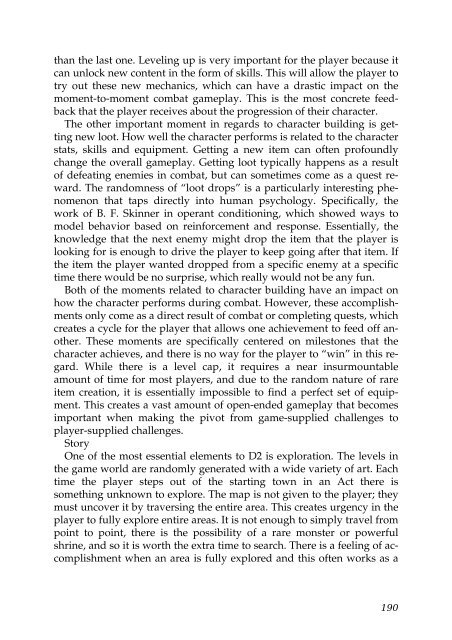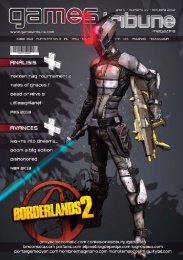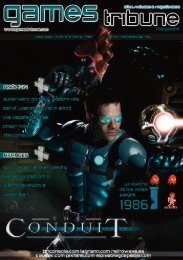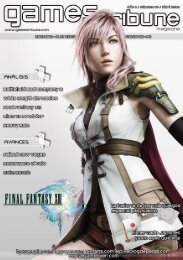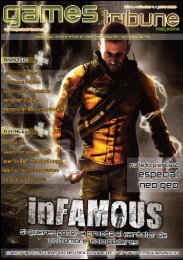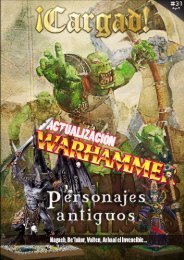Well Played 2.0: Video Games, Value and Meaning - OpenLibra
Well Played 2.0: Video Games, Value and Meaning - OpenLibra
Well Played 2.0: Video Games, Value and Meaning - OpenLibra
Create successful ePaper yourself
Turn your PDF publications into a flip-book with our unique Google optimized e-Paper software.
than the last one. Leveling up is very important for the player because it<br />
can unlock new content in the form of skills. This will allow the player to<br />
try out these new mechanics, which can have a drastic impact on the<br />
moment-to-moment combat gameplay. This is the most concrete feedback<br />
that the player receives about the progression of their character.<br />
The other important moment in regards to character building is getting<br />
new loot. How well the character performs is related to the character<br />
stats, skills <strong>and</strong> equipment. Getting a new item can often profoundly<br />
change the overall gameplay. Getting loot typically happens as a result<br />
of defeating enemies in combat, but can sometimes come as a quest reward.<br />
The r<strong>and</strong>omness of “loot drops” is a particularly interesting phenomenon<br />
that taps directly into human psychology. Specifically, the<br />
work of B. F. Skinner in operant conditioning, which showed ways to<br />
model behavior based on reinforcement <strong>and</strong> response. Essentially, the<br />
knowledge that the next enemy might drop the item that the player is<br />
looking for is enough to drive the player to keep going after that item. If<br />
the item the player wanted dropped from a specific enemy at a specific<br />
time there would be no surprise, which really would not be any fun.<br />
Both of the moments related to character building have an impact on<br />
how the character performs during combat. However, these accomplishments<br />
only come as a direct result of combat or completing quests, which<br />
creates a cycle for the player that allows one achievement to feed off another.<br />
These moments are specifically centered on milestones that the<br />
character achieves, <strong>and</strong> there is no way for the player to “win” in this regard.<br />
While there is a level cap, it requires a near insurmountable<br />
amount of time for most players, <strong>and</strong> due to the r<strong>and</strong>om nature of rare<br />
item creation, it is essentially impossible to find a perfect set of equipment.<br />
This creates a vast amount of open-ended gameplay that becomes<br />
important when making the pivot from game-supplied challenges to<br />
player-supplied challenges.<br />
Story<br />
One of the most essential elements to D2 is exploration. The levels in<br />
the game world are r<strong>and</strong>omly generated with a wide variety of art. Each<br />
time the player steps out of the starting town in an Act there is<br />
something unknown to explore. The map is not given to the player; they<br />
must uncover it by traversing the entire area. This creates urgency in the<br />
player to fully explore entire areas. It is not enough to simply travel from<br />
point to point, there is the possibility of a rare monster or powerful<br />
shrine, <strong>and</strong> so it is worth the extra time to search. There is a feeling of accomplishment<br />
when an area is fully explored <strong>and</strong> this often works as a<br />
190


